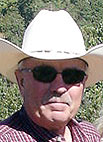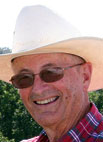A Low-Stress Learning Curve
Randy and Jane Miller of Miller Bison in Bruner, Mo., have had a longtime love of the once prominent symbol of the American West. Growing up in the Kansas cattle business, Randy had some exposure to bison and was interested in the huge, majestic animals. In 1995 the Millers purchased their first bison – 20 head of heifers from the annual Custer State Park Buffalo Sale in South Dakota. And so a learning journey began. “The more we had them, the more they grew on us,” Randy said. At the time Randy and Jane entered the bison industry, there was a limited amount of information available to bison breeders – so nearly everything was an experiment. The Millers stuck with the ups and downs of the market and eventually found a niche selling bison meat to chefs in Colorado. “We brought a quality and consistent product,” said Randy. Consistency proved to be the key in the bison meat business and today, Miller Bison sells an estimate of 1,000 head of processed bison annually.
Mentoring by Horse
Linda Collins, now Linda Faber, grew up in Rolla, Mo., along with her 11 brothers and sisters and moved to Australia, on her own at age 17. “We were a yours, mine and ours sort of family,” she laughed. “I always liked horses but it simply wasn’t something we could afford in such a big family. It wasn’t until I was at the Discipleship Center during my two years in Australia that I got to ride. I quickly figured out, oh, this could be addicting. Back in America, in the years that followed, I worked at a lady’s ranch and at another stable in St. James, Mo., as a volunteer. I wanted to be sure I had what it took to do the work involved with horses every day. I listened to everyone. I also worked at a family camp in Arkansas and then later, while going to college in Moberly, Mo., at Central Christian College getting a degree in Christian education, I worked at an AQHA (American Quarter Horse Association) barns with one of their top trainers and judges. Three months turned into three years as I also went to shows with them.
Faith in Farming
A math teacher at Marshfield High School, Robert Smith has been teaching for six years. This is his second year at Marshfield. Before that he taught for four years at Buffalo. Prior to teaching he managed cattle farms.
Wranglers and Anglers
East of Tulsa, Okla., on Hwy 412, one can certainly tell where the farming life begins. It is almost instantly innocuous. No whirling sounds of emergency vehicles, no threats of crime and an immediate realization of a population decrease. North off of Hwy 412 outside of Inola, Okla., the winding road eventually turned into a one lane road, hovered trees and plentiful wildlife with an amazing stretch of a panoramic view of the Moore’s Fish Farm.
Busy with Diversity
Arkansas has recently instituted a program that designates and honors farms that had been in the same family for 100 years, and the Morgan operation in both Lamar and Clarksville, Ark., was among the first, even though part of the farm was established almost 140 years ago. The operation that Steve and Carol Morgan run is highly diversified with cattle, turkeys and a pick-your-own peach orchard. Steve’s son, Mark, works full-time with his father on the farm which also supports three full-time employees. Steve said, "Every part of the operation has downtime, and the diversity allows us to keep everybody busy all of the time. In fact, we' re never caught up."
Profits Provided by Pounds
"Charolais have always been the biggest weight gainers,” stated Jim Starkey owner of Starkey’s Southfork Ranch, in Harrison, Ark. “So why not raise cattle that perform the best and have the best production records?”
A Smooth Ride
"She was such an easy ride, so I thought I'd specialize in Missouri Fox Trotter horses.” This is what Ervin Hill said about the first Missouri Fox Trotter that he bought and rode. Ervin, who had primarily rode traditional trotting horses, was impressed with the smoothness in the stride of the gaited horse. “It's different than a trot of a Quarter Horse, the Fox Trotter always has at least one hoof on the ground,” explained Ervin, “they are very sure footed, and have an incredible sense of foot placement.” Ervin also went on to explain that Missouri Fox Trotter horses were bred and developed to handle the terrain of the Ozarks. The Fox Trotter is primarily a cross of the Tennessee Walking Horse, Morgan and American Saddlebred.
Marketing More Meat
Jared Frieze of rural Polk County is a man who knows his business and even at his young age, has a pretty clear idea of where he’s going next. A 2013 graduate of Marion C. Early High School of Morrisville, Mo., Jared raises 80 White Dorper sheep on 30 acres at his family’s home.
Diversified Dividends
David and Carolyn Carrier, like five generations before them, farm the rich, dark soil on the Muddy Creek Angus Farm, just outside of Lockwood, Mo., in southwestern Dade County. The Carriers raise and breed registered, purebred Black Angus cattle, and in 2009 were given the distinguished honor of being named, “Top 20 Missouri Angus Breeders” by the American Angus Association. Their herd was started in 1947 by David’s father. They are a cow/calf operation and also sell replacement heifers and breeding bulls.
Training and Commitment
Monte and Ashley Shockley and Monte’s parents, Monte Sr. and Rita Shockley, run a registered Hereford Ranch and Shockley's Auto Sales, both in Poteau, Okla. Monte smiled and said,” We do well together. We both know our parts. We think alike, and on those rare occasions when we disagree, he wins.”











